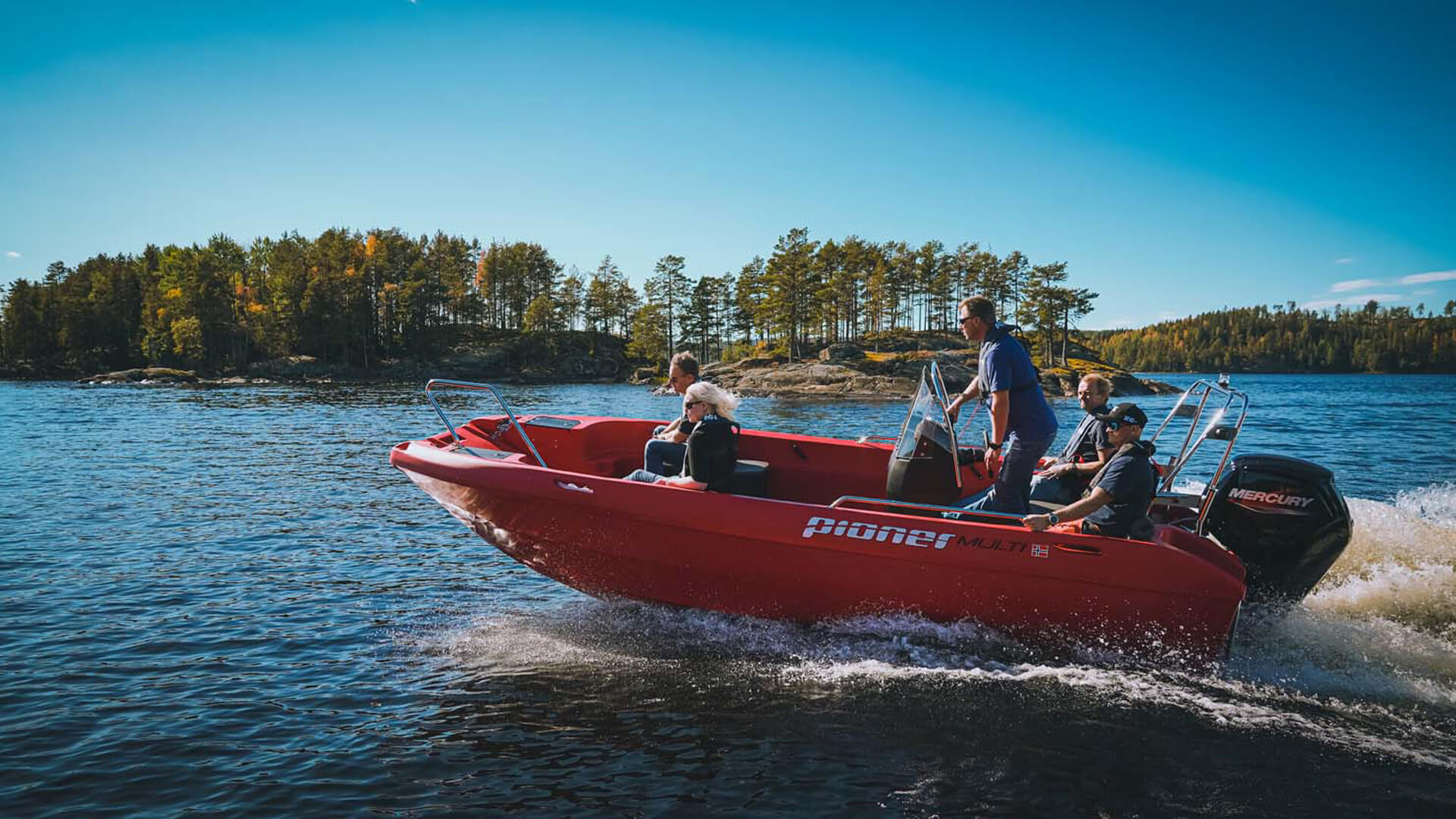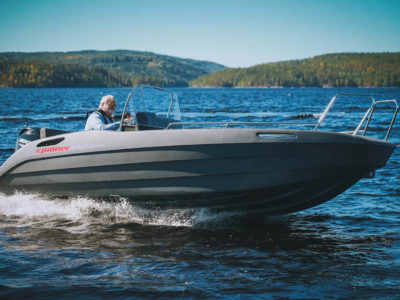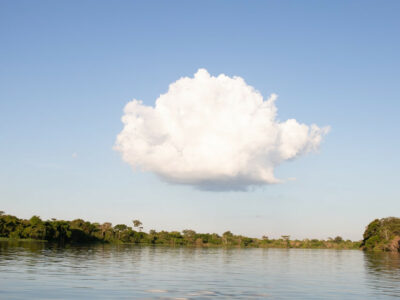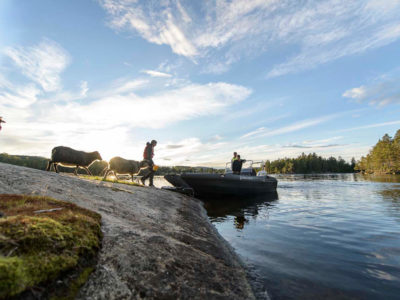Sustainable transport

Transportation
Today, the transportation of people and goods in Sweden makes up a quarter of energy use.
Leisure boats account for a relatively small part of the total emissions and energy use, but leisure boats are often found in sensitive environments such as bays, lakes and seas. Therefore, it is very important to adapt your transportation and ensure that it is sustainable.
The transportation of both goods and people to a great extent takes place on water, which means that we need to consider how we can do this in a more sustainable and environmentally friendly way. To make transportation on water more sustainable, technical development of fuel, more environmentally efficient engines and hulls are needed. We also need to take into account what we release into the water, such as anti-fouling paint and emptying grey water.
How can transportation on water become more sustainable?
- Transition to more environmentally friendly fuel and development of new more efficient fuels.
- Energy-efficient hulls that reduce fuel consumption and increase the efficiency of transportation
- Electric motors and alternative propulsion.
For leisure boats and smaller boats, which Pioner manufactures, it is important that the user thinks about what the boat will be used for and adapts the boat accordingly. For example, if you want to travel shorter distances in a protected environment where there is calm water, an electric motor is a good option. Imagine gliding along quietly and smoothly without emitting exhaust fumes.
If you need a boat that can withstand rougher waters, longer distances and you would like to get up to a certain speed, you should choose a boat with an efficient hull and an energy-efficient engine with more environmentally friendly fuel.
Sustainability through the life cycle:
As a boat affects the environment throughout its lifetime, it is important to consider how the boat is produced. Are environmentally friendly materials used? Is the production energy-efficient? Can the boat be recycled at the end of its life cycle?
Pioner boats are made of the material polyethylene, which is a recyclable material that is robust and has a long life. Pioner works with NPR (Nordic Plastic Recycling) to provide customers with an easy way to recycle their old boats.
To reduce your emissions when travelling by leisure boat, you should consider driving at the most economical speed, skip full throttle! Learn more about fuel-saving “eco-driving”.
Another tip is to row or use an electric motor for shorter trips.
In 2019, the Swedish Transport Agency conducted a survey of the emissions for leisure boats in Sweden. In the survey, it was established that the biggest environmental problems are associated with boat engines. In the survey, it was discovered that 60% of the emissions come from old 2-stroke engines with older carburettor technology. The proportion of old 2-stroke engines used by leisure boats is only 18%, but they still cause nearly two-thirds of boat emissions. Trying to phase out these engines is an important part of creating more sustainable transport.





